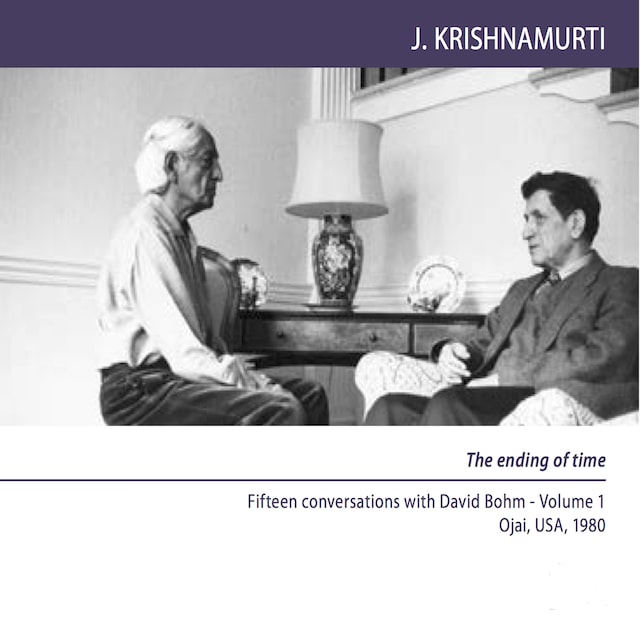
The Ending Of Time
Fifteen conversations with David Bohm, Ojai, USA, 1980
Beskrivelse av boken
1. The roots of psychological conflict - 1 April 1980 Duration: 82 minutes • Has humanity taken a wrong turn? • What is the root of this tremendous inward conflict of humanity? • When I am trying to become something it is a constant battle. • Can the brain itself see that it is caught in time and as long as it is moving in that direction conflict is eternal, endless? • Can the mind realise, resolve a psychological problem immediately? • Has mankind journeyed through millennia to come to this: that I am nothing and therefore I am everything and all energy? 2. Cleansing the mind of the accumulation of time - 2 April 1980 Duration: 79 minutes • Time is the enemy of man. • Is there a beginning which is not enmeshed in time? • We said nothingness is everything and so it is total energy. It is undiluted pure, uncorrupted energy. Is there something beyond that? • Has man ever been free from the 'I'? • That emptiness can only exist when there is death of the particular. 3. Why has man given supreme importance to thought? - 8 April 1980 Duration: 84 minutes • Q: Is the 'ground' indifferent to mankind, as the physical universe appears to be? • How does one find out if there is something more than the merely physical? • Q: Why is it that theories are necessary and useful in organising facts about matter outwardly, and yet inwardly, psychologically they are in the way, of no use at all? • Seeking security for myself, for my family, for my group, for my tribe, has brought about division. • Why has man given importance to thought as the supreme thing? • If I accept I am irrational completely, I am rational. 4. Breaking the pattern of egocentric activity - 10 April 1980 Duration: 79 minutes • What will make a human being change, deeply, fundamentally, radically? • Will I, as a human being, give up my egocentric activity completely? • The more knowledge I have acquired, as I have evolved, as I have grown, as I have experienced, it has strengthened me, and I have been walking on that path for millennia. Perhaps I may have to look at this problem totally differently - which is not to walk on that path at all; discard all knowledge I have acquired. • Explanations have been the boat on which to cross to the other shore. The man on the other shore says there is no boat. Cross! • What happens to me when I meet something that is completely solid, immovable, absolutely true? • Psychological knowledge has made us dull. 5. The ground of being, and the mind of man - 12 April 1980 Duration: 71 minutes • Why has having ideas become so important? • What is the difference between a religious mind and a philosophic mind? • What is the human mind's relationship to the 'ground'? • Why has man accumulated knowledge? • When you love somebody there is no 'me', it is love. In the same way, when I say I am humanity, it is so. It is not an idea, it is not a conclusion, it is part of me. • There is only one thing and that is to discover that what I have done is useless, ashes. You see, that doesn't depress one. That is the beauty of it. It is like the Phoenix, born out of ashes. 6. Can insight bring about a mutation of the brain cells? - 15 April 1980 Duration: 95 minutes • Can insight change the brain cells? • In the brain is there an activity which is not touched by consciousness? • Insight is not dependent on the material process, which is thought. • Where there is violence, peace cannot exist. Where there is peace, is there violence? • As insight is causeless, is not born out of cause, that insight has a definite effect on that which has cause. • The material process acts in ignorance, in darkness. This flash of insight enlightens the whole field, which means ignorance, darkness has been dispelled. 7.


